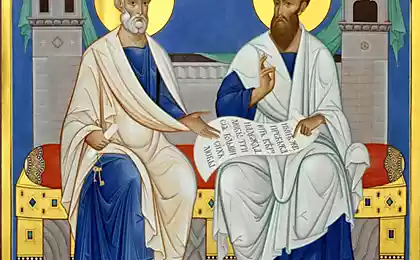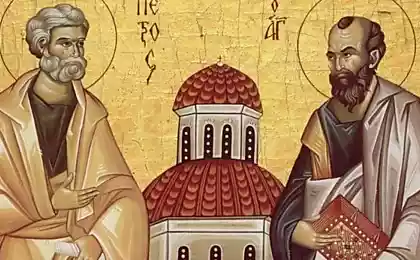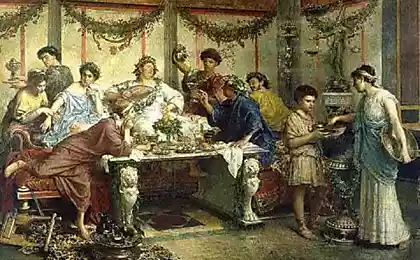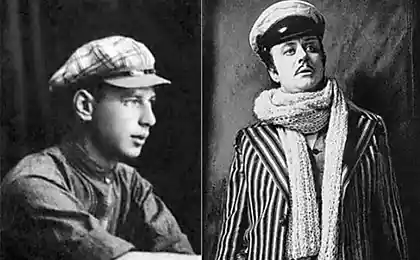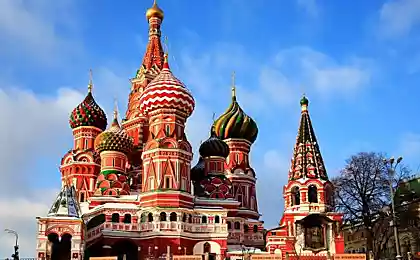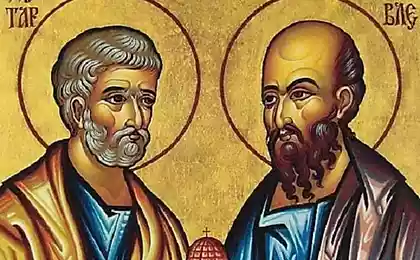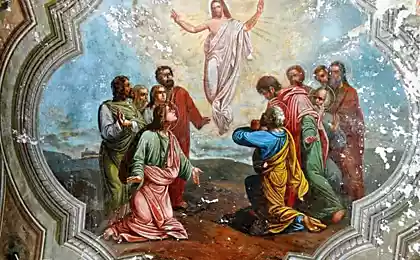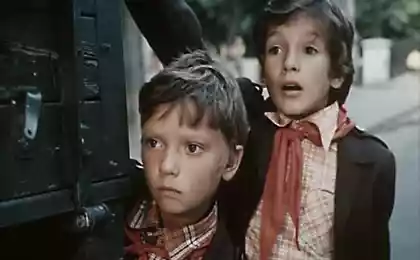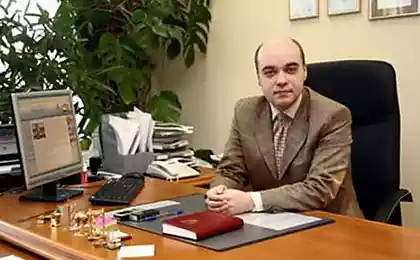646
Related searches
Why the fast of the apostles disliked some of the faithful Christians? In this article we try to understand the causes of this phenomenon.
Well, we had another opportunity to fast for a short time! June 27, Monday, began the Apostolic or post Petrov, preparing us for the day of Saints Peter and Paul, celebrated on July 12.
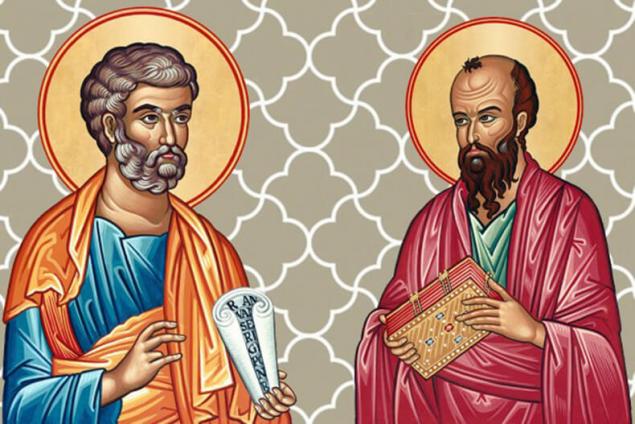
What is this for us: "joy in the morning" or "weeping and gnashing of teeth"?
I noticed that the Orthodox Christians are very rarely opposed (even if they really want) or the Great Christmas fast, but not silent, when it comes to summer posts: Petrov and Uspensky. For these two positions, especially for Peter's fast, there are always plausible reasons not to fast. We say, "I don't usually fast on this post."
Indeed, the fast of the apostles – a real Cinderella among the Orthodox posts: we recognize that our sister, but would prefer that it was not.
It's funny how we love a solid week, believing that it should be so, and utterly're shorting the attention these "little posts" as they are called in some books.
If we still draw attention to them, they begin to appear to us as something that does not belong to us. "It's a monastic Charter", we say. Or: "Here you are! Did you know that when the feast of Peter and Paul falls on a Friday, it's still a fast day?".
And then we come to the false conclusion as something self-evident: if a holiday does not cover a fast day, and that means fasting, preparing us to him, not so important. "Why bother? And while this holiday".
From your priestly experience I can say that objections and appeals is not able to stop this tsunami of excuses. Some of us have already decided for themselves that it is enough to fast only during the Great and advent.
Others are also not happy with the prospect of another post, coming sometimes, in our ignorance, like an uninvited guest. But we still want to observe the Holy traditions of the Church and the liturgical calendar. Despite this we want to know "why?". "Why, for God's sake (a reply from someone smaller does not satisfy us), need this Apostolic post? For what?!"
The answer, in a sense, no different from the response on any other post, or spiritual practice. This is the path of Orthodoxy. First, we prepare and then celebrate. First, we empty ourselves, then the Lord fills us.
The classic means of Christian spiritual life are prayer, fasting and almsgiving. Full stops in the spiritual life. Sometimes we just slowed down and enjoy such big holidays like Easter, Pentecost and Christmas. This is our way, and now that Pentecost is over, and came the so-called "ordinary time", time to move on.
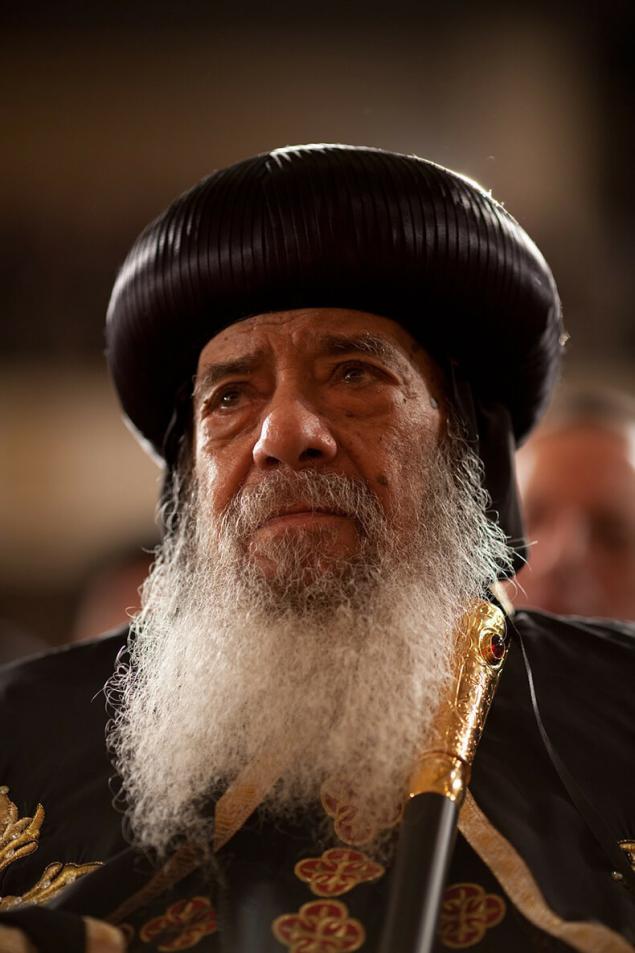
Shenouda III
Here, we will help the Patriarch of the Coptic Church Shenouda III:
"The Apostolic position in the New Testament when the Lord Jesus Christ was asked why His disciples did not fast, He replied: "But the days will come, when taken away from them the bridegroom then they will fast" (Matt. 9:15). The apostles fasted together and not hide it, and the Lord accepted their fast. Here are examples of the apostles ' fast: "as they ministered to the Lord and fasted, the Holy Ghost said, separate Me Barnabas and Saul for the work whereunto I have called them. When they had fasted and prayed, and laid hands on them and sent them off (Acts 13:2-3) [the"Joint prayer and fasting", Shenouda III].
Everything is clear, isn't it? On the one hand, to fast they began after the ascension of the Lord in anticipation of the great Gift of the spirit of God. On the other hand, the Apostolic Church fasted and after Pentecost in order to "Wake up" all the same Spirit. Today, the Church is called to live the business and life of the apostles: to unite the whole world in the Lord and to repeat the hymns of Pentecost. If Christ himself predicted such a post and the apostles fasted, preparing to enter the Ministry, why can't we fast?
Isn't that, after all, is the meaning of the time after Pentecost? Isn't that why we kneel during the kneeling prayers at the vigil in spirit day, Monday after the feast of the Holy Trinity?
If anything, I think that the explanations do not require the need of fasting in the weeks after Trinity, and the reluctance to fast. The first Christians and the Church saw sense in the post. Apostolic post brings us back on track, to the right follow Christ.
Theologian of the Protestant Evangelical Church of Singapore Simon Chang may also have something to say about Christian mission:
"What is the mission of the Trinity? The answer to this question: the Eucharist. In the end, all is restored fellowship with the triune God. The Eucharist, not missionary activity, is the ultimate goal.
If we look on the Eucharist as the center of life in the Church, we will have a place for missionary activities. This is illustrated by the ancient Liturgy, which included four elements: the Assembly, the preaching of the Word, the celebration of the Eucharist and in the world. The last element is missionary activity..."
This view is consistent with the teachings of the Orthodox Church. Therefore, all saints ' Day originates from the beginnings of the Holy Pentecost. Because of the Apostolic and the post goes at once after Day of all saints.
Missionary activity begins with fellowship with the living God and requires complete trust in God which is expressed in prayer and fasting. Cheng Orthodox in his understanding of the relationship between missionary work and fellowship with the Holy Trinity. It is clear from his words about the Orthodox Liturgy:
"If you go to an Orthodox service, you will be amazed how well thought out the final part of the service. It's not just a dismissal, it is full of prayers and litanies, to prepare us for release back into the world."
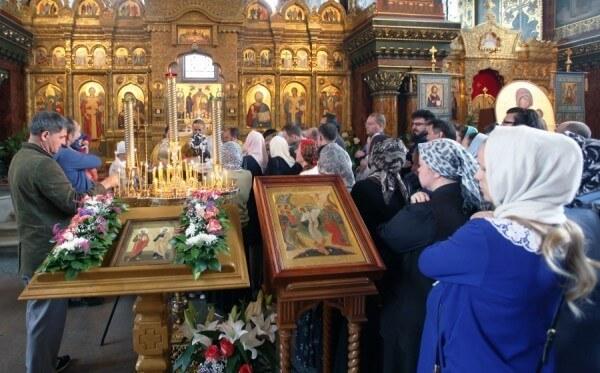
Perhaps neither you nor I really do not understand what we do every Sunday and we need a wise theologian who literally perjorative us in our Orthodox faith and life. Together with Petrov post, we go out into the world to testify to the unity with the living God, Father, Son, and Holy Ghost! This post is directly linked with the life in the Spirit of our journey in a world where we are entirely dependent on God, celebrate, serve and participate in the life of the Holy Trinity.
Holy Trinity Day
The mystery of the prayer "our father"
This is the meaning of the apostles ' fast. So let's not grumble and cheat their fellow human beings, who, perhaps, would also like not to fast. Let's just do it, he washed his face and living a life in Christ. In the end, this post is like Cinderella – the sweetest girl that not everyone understands, and some even despise. However, if memory serves me correctly, this story ends very well.published
Author: priest David Thatcher
Translation: Eugene Kim
P. S. And remember, only by changing their consumption — together we change the world! ©
Source: www.pravmir.ru/nelyubimyj-petrov-post/
Well, we had another opportunity to fast for a short time! June 27, Monday, began the Apostolic or post Petrov, preparing us for the day of Saints Peter and Paul, celebrated on July 12.

What is this for us: "joy in the morning" or "weeping and gnashing of teeth"?
I noticed that the Orthodox Christians are very rarely opposed (even if they really want) or the Great Christmas fast, but not silent, when it comes to summer posts: Petrov and Uspensky. For these two positions, especially for Peter's fast, there are always plausible reasons not to fast. We say, "I don't usually fast on this post."
Indeed, the fast of the apostles – a real Cinderella among the Orthodox posts: we recognize that our sister, but would prefer that it was not.
It's funny how we love a solid week, believing that it should be so, and utterly're shorting the attention these "little posts" as they are called in some books.
If we still draw attention to them, they begin to appear to us as something that does not belong to us. "It's a monastic Charter", we say. Or: "Here you are! Did you know that when the feast of Peter and Paul falls on a Friday, it's still a fast day?".
And then we come to the false conclusion as something self-evident: if a holiday does not cover a fast day, and that means fasting, preparing us to him, not so important. "Why bother? And while this holiday".
From your priestly experience I can say that objections and appeals is not able to stop this tsunami of excuses. Some of us have already decided for themselves that it is enough to fast only during the Great and advent.
Others are also not happy with the prospect of another post, coming sometimes, in our ignorance, like an uninvited guest. But we still want to observe the Holy traditions of the Church and the liturgical calendar. Despite this we want to know "why?". "Why, for God's sake (a reply from someone smaller does not satisfy us), need this Apostolic post? For what?!"
The answer, in a sense, no different from the response on any other post, or spiritual practice. This is the path of Orthodoxy. First, we prepare and then celebrate. First, we empty ourselves, then the Lord fills us.
The classic means of Christian spiritual life are prayer, fasting and almsgiving. Full stops in the spiritual life. Sometimes we just slowed down and enjoy such big holidays like Easter, Pentecost and Christmas. This is our way, and now that Pentecost is over, and came the so-called "ordinary time", time to move on.

Shenouda III
Here, we will help the Patriarch of the Coptic Church Shenouda III:
"The Apostolic position in the New Testament when the Lord Jesus Christ was asked why His disciples did not fast, He replied: "But the days will come, when taken away from them the bridegroom then they will fast" (Matt. 9:15). The apostles fasted together and not hide it, and the Lord accepted their fast. Here are examples of the apostles ' fast: "as they ministered to the Lord and fasted, the Holy Ghost said, separate Me Barnabas and Saul for the work whereunto I have called them. When they had fasted and prayed, and laid hands on them and sent them off (Acts 13:2-3) [the"Joint prayer and fasting", Shenouda III].
Everything is clear, isn't it? On the one hand, to fast they began after the ascension of the Lord in anticipation of the great Gift of the spirit of God. On the other hand, the Apostolic Church fasted and after Pentecost in order to "Wake up" all the same Spirit. Today, the Church is called to live the business and life of the apostles: to unite the whole world in the Lord and to repeat the hymns of Pentecost. If Christ himself predicted such a post and the apostles fasted, preparing to enter the Ministry, why can't we fast?
Isn't that, after all, is the meaning of the time after Pentecost? Isn't that why we kneel during the kneeling prayers at the vigil in spirit day, Monday after the feast of the Holy Trinity?
If anything, I think that the explanations do not require the need of fasting in the weeks after Trinity, and the reluctance to fast. The first Christians and the Church saw sense in the post. Apostolic post brings us back on track, to the right follow Christ.
Theologian of the Protestant Evangelical Church of Singapore Simon Chang may also have something to say about Christian mission:
"What is the mission of the Trinity? The answer to this question: the Eucharist. In the end, all is restored fellowship with the triune God. The Eucharist, not missionary activity, is the ultimate goal.
If we look on the Eucharist as the center of life in the Church, we will have a place for missionary activities. This is illustrated by the ancient Liturgy, which included four elements: the Assembly, the preaching of the Word, the celebration of the Eucharist and in the world. The last element is missionary activity..."
This view is consistent with the teachings of the Orthodox Church. Therefore, all saints ' Day originates from the beginnings of the Holy Pentecost. Because of the Apostolic and the post goes at once after Day of all saints.
Missionary activity begins with fellowship with the living God and requires complete trust in God which is expressed in prayer and fasting. Cheng Orthodox in his understanding of the relationship between missionary work and fellowship with the Holy Trinity. It is clear from his words about the Orthodox Liturgy:
"If you go to an Orthodox service, you will be amazed how well thought out the final part of the service. It's not just a dismissal, it is full of prayers and litanies, to prepare us for release back into the world."

Perhaps neither you nor I really do not understand what we do every Sunday and we need a wise theologian who literally perjorative us in our Orthodox faith and life. Together with Petrov post, we go out into the world to testify to the unity with the living God, Father, Son, and Holy Ghost! This post is directly linked with the life in the Spirit of our journey in a world where we are entirely dependent on God, celebrate, serve and participate in the life of the Holy Trinity.
Holy Trinity Day
The mystery of the prayer "our father"
This is the meaning of the apostles ' fast. So let's not grumble and cheat their fellow human beings, who, perhaps, would also like not to fast. Let's just do it, he washed his face and living a life in Christ. In the end, this post is like Cinderella – the sweetest girl that not everyone understands, and some even despise. However, if memory serves me correctly, this story ends very well.published
Author: priest David Thatcher
Translation: Eugene Kim
P. S. And remember, only by changing their consumption — together we change the world! ©
Source: www.pravmir.ru/nelyubimyj-petrov-post/



